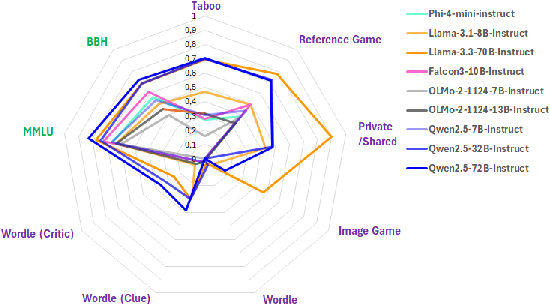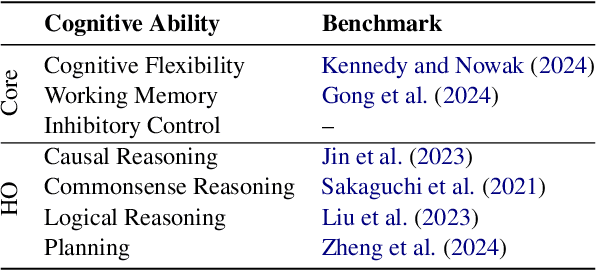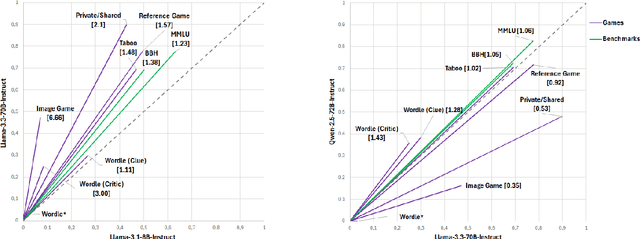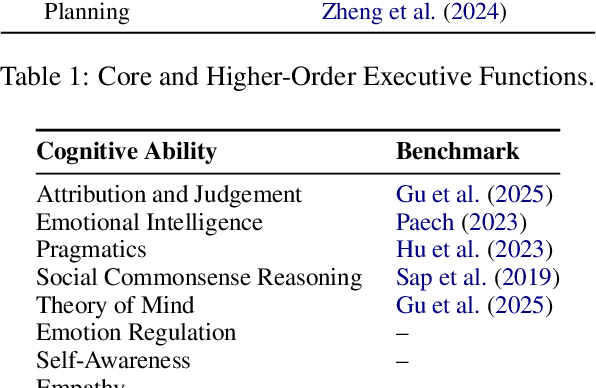Filippo Momentè
Playpen: An Environment for Exploring Learning Through Conversational Interaction
Apr 11, 2025Abstract:Are we running out of learning signal? Predicting the next word in an existing text has turned out to be a powerful signal, at least at scale. But there are signs that we are running out of this resource. In recent months, interaction between learner and feedback-giver has come into focus, both for "alignment" (with a reward model judging the quality of instruction following attempts) and for improving "reasoning" (process- and outcome-based verifiers judging reasoning steps). In this paper, we explore to what extent synthetic interaction in what we call Dialogue Games -- goal-directed and rule-governed activities driven predominantly by verbal actions -- can provide a learning signal, and how this signal can be used. We introduce an environment for producing such interaction data (with the help of a Large Language Model as counterpart to the learner model), both offline and online. We investigate the effects of supervised fine-tuning on this data, as well as reinforcement learning setups such as DPO, and GRPO; showing that all of these approaches achieve some improvements in in-domain games, but only GRPO demonstrates the ability to generalise to out-of-domain games as well as retain competitive performance in reference-based tasks. We release the framework and the baseline training setups in the hope that this can foster research in this promising new direction.
Triangulating LLM Progress through Benchmarks, Games, and Cognitive Tests
Feb 20, 2025



Abstract:We examine three evaluation paradigms: large question-answering benchmarks (e.g., MMLU and BBH), interactive games (e.g., Signalling Games or Taboo), and cognitive tests (e.g., for working memory or theory of mind). First, we investigate which of the former two-benchmarks or games-is most effective at discriminating LLMs of varying quality. Then, inspired by human cognitive assessments, we compile a suite of targeted tests that measure cognitive abilities deemed essential for effective language use, and we investigate their correlation with model performance in benchmarks and games. Our analyses reveal that interactive games are superior to standard benchmarks in discriminating models. Causal and logical reasoning correlate with both static and interactive tests, while differences emerge regarding core executive functions and social/emotional skills, which correlate more with games. We advocate the development of new interactive benchmarks and targeted cognitive tasks inspired by assessing human abilities but designed specifically for LLMs.
 Add to Chrome
Add to Chrome Add to Firefox
Add to Firefox Add to Edge
Add to Edge